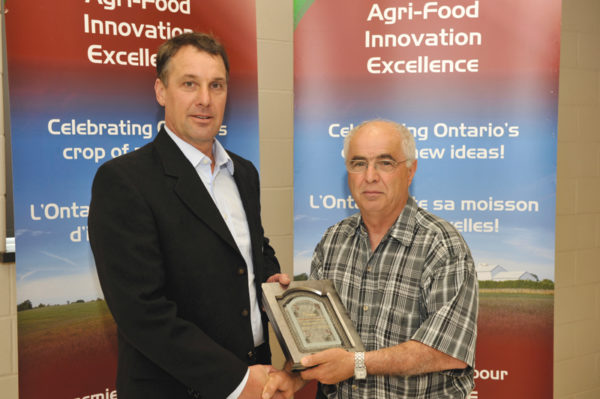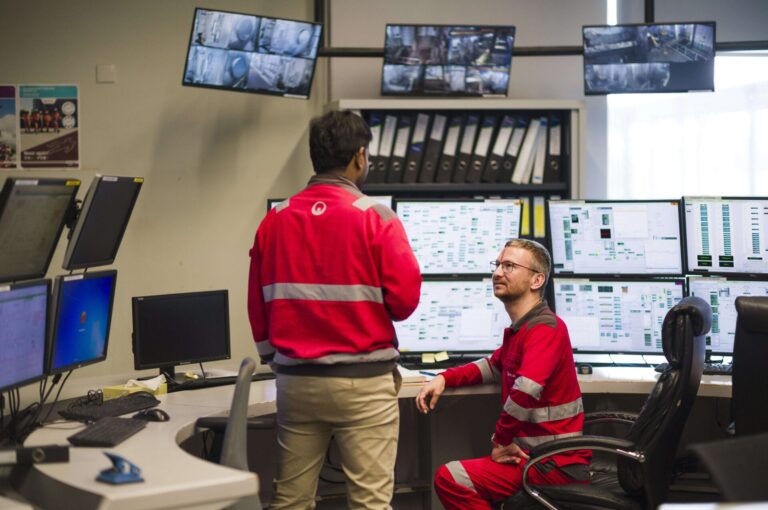A successful business has management and staff that constantly look for ways to make money and ways to save money. When it comes to managing wastewater generated by a business, ways of saving money may flip into ways of making money. Algoma Orchards, located near the Town of Newcastle, Ontario, has already started this process.
Food industry and water challenges
In some jurisdictions in North America, municipalities will allow the discharge of wastewater containing high biochemical oxygen demand (BOD), high total suspended solids (TSS), or other pollutants in excess of the sewer use bylaw in exchange for a fee for treatment. This is typically done if the municipality has excess treatment capacity at its wastewater treatment plant.
In the food industry, it is not uncommon for a facility to pay a municipality annual fees into the tens of thousands of dollars or more to treat wastewater that does not meet the sewer use bylaw. For some food plants, the additional cost of wastewater treatment is justified as its own treatment facility is not required.
Some companies in the food industry opt to treat their wastewater on-site prior to discharge. There are pros and cons to this option. The pros include the ability to control costs through the management of one’s wastewater and the potential to recycle water. The cons include dealing with potential odour issues, space restrictions, and the need for specialized training of staff to operate the treatment system.
With the growing challenge of water supply in some jurisdictions, the focus on water recycling has grown in popularity. Process wastewater is becoming too precious a resource to simply flush down the drain. Water recycling and reuse have grown in popularity.
Algoma Orchards case study
Algoma Orchards is a family-run company that specializes in growing apples and producing apple cider. They have been in business for more than 50 years. Algoma Orchards is one of Canada’s largest apple companies with a fully integrated production facility that packages annually over 36 million kilograms of apples for wholesale, presses nearly four million litres of juice, and produces a variety of prepared products such as baked goods and gourmet foods.
Algoma had a two-fold problem. First, water was supplied to the facility from on-site wells. The amount of water needed for processing apples was on the verge of outpacing the amount of water that could be supplied by the wells. The second problem was that the wastewater from the facility exceeded the local municipalities sewer use bylaw for BOD and TSS.
One option for solving the water supply problem was to pay for a water supply line from the local municipality. However, the rural location meant that the cost of pipeline would be considerable.
An option considered for the problem of the high-strength wastewater, was to continue to pay high fees related to treating the over-strength wastewater.
Another option that was to recycle and reuse the process wastewater. The answer on which path to choose came down to a cost-benefit analysis and a calculation on the payback from the cheapest option.

Strategic solution
Algoma engaged the services of Toronto-based Altech Solutions to develop and implement the water recycling system. The heart of the water recycle system is a membrane bioreactor (MBR). The advantage of a MBR in an industrial setting is that it is compact. The aerobic microorganisms in the MBR removes the BOD from the wastewater and the ultra filtration system removes any suspended solids. The water is polished with an ultraviolet disinfection system.
In 2009, Algoma Orchards opened a 165,000-square foot production facility that included a potable water treatment system, a state-of-the-art rainwater harvesting system and MBR for treatment and reuse of greywater. These on-site treatment and recycling processes provide a self-reliant water system for the facility, reduce its demand on local groundwater supplies and ensure an abundant, sustainable supply of water for the production lines and the retail bakery.

Together, the rainwater and MBR systems can largely meet the daily requirements for process water, with small withdrawals from the well to provide process make-up water and to supply potable water for staff and the bakery.
The MBR treats all the greywater collected from the facility processes including the apple flume, apple washing, bottle washing, pressing and filling equipment and more. It can provide up to 35,000 litres of treated effluent, which then passes through a reverse osmosis system. Treated effluent from the MBR is blended with harvested rainwater in a storage tank to ensure sufficient, on-demand supply. Final disinfection of water from the storage tank is performed using an ultraviolet light system before it is reused in the production processes. The result of this new recycling system in annual savings is $200,000 annually.









